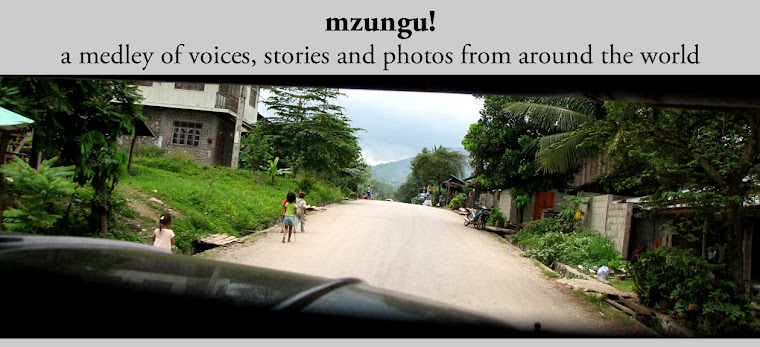In the midst of heart-breaking stories and difficult journeys, music, dance and drama often bubble to the surface in Kyaka II refugee camp. A woman walking down a red dirt road bursts into song in the morning mist. A young woman pounding papyrus keeps the beat with a simple melody. And a group of Congolese men and women gather under a simple shelter to sing and dance their experiences.
This is the Amakemi group, which means “rise up” in Swahili. As a crowd of elderly, young girls, men and women of all ages gather under the shade of trees to listen, the 10 members of the group sing “we are refugees, we have problems. In Africa, people are suffering.”
Charlotte Burungi, the leader of the group, lifts her hands in the air as they continue the song to the beat of a single drum: “We are asking all people to pray so war and torturing is stopped and refugees can return to their motherland.”
Burungi, mother of four children at age 26, fled Congo six years ago after rebels came to her village, burned houses, and slaughtered her neighbors. She began singing when she was six years old, and sang in a church choir in Congo. Although her entire life has been uprooted, she holds onto song and dance.
“When I’m singing, I’m happy,” she says with a slight smile. “But sometimes I’m sad because it reminds us of what’s still happening in Congo.”
The Amakemi group, founded two years ago, composes their own music and centers the lyrics around love. Because war is caused by lack of love, they say, they use their songs to ask people to love each other. If you love, Amakemi sings, you can’t steal, you can’t kill, and you will always have friends. They sing about change, asking their rapt listeners to leave their old violent ways and forget revenge.
This is not the only music and dance group in the camp. Travel along the bumpy red dirt roads, through many green gardens, and past mud huts with plastic and grass roofs, and the Buliti Drama Group comes into sight.
Three young men vigorously beat drums in the centre of a circle of colourfully-clothed women. The women dance around the circle with banana leaves strapped to their waists, stamping their feet, singing with strong voices, and calling out “ai-i-i-i-i-i-!” Babies strapped to some of their backs bounce along with the dance, young children run in and out of the circle as they also play with sticks and tire rims, and men fall in and out of the circle.
Like the Amakemi group, these Congolese are singing about their troubles in Congo, but how happy they are to be in the refugee camp now. They feel peaceful and happy in the camp and are grateful to be there.
The leader is Love, a 42-year-old woman who explains that the group sings and dances together every week for over an hour. Most of them have been in Kyaka for four or five years, and they are not yet ready to return to Congo because the land is still unsettled. They feel good and happy when they sing and dance, she says. It gives them a space to express their joint experiences as refugees. They don’t listen to other kinds of music, because this traditional music is an integral part of their identity. It is a place to show their gratitude, express their emotions, and share their experiences.
So as babies bounce to their mothers’ dances in Buliti Drama Group, and as young and old gather together under the trees to listen to Amakemi, the music and dance in Kyaka refugee camp—a place for the homeless and rejected—rings out loud and clear.
08 July 2009
Subscribe to:
Post Comments (Atom)



No comments:
Post a Comment